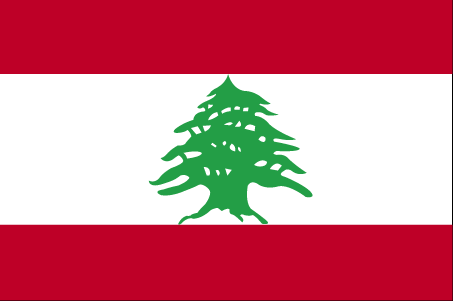Login form
Customs of Lebanon
 Marriage and Family
Marriage and Family
Because financial independence is customarily a prerequisite for marriage, men often wait to marry until their late 20s or early 30s. Women usually marry in their early 20s. Christians in
Cousins and other relatives are expected to have close personal relationships. In fact, cousins are generally as close as brothers and sisters. Urban families are usually smaller than rural families. Discipline is strict, and children show respect for their parents and other elders. The father is considered head of the family, while the mother generally takes care of the home and children. Many women who work outside the home do so out of economic necessity.
Eating
Lebanese cuisine is often spicy and hot. Stews are a specialty, but many meals are light or vegetarian. On special occasions people may spend several hours in someone’s home or in a restaurant enjoying a traditional meza, where diners help themselves as often as they like from 20 or more dishes. Kibbeh is a popular beef dish that can be either baked, fried, or eaten raw.
The main meal of the day is eaten between noon and 3 pm, and may last for two hours or longer. Lebanese enjoy eating foods from many regions. Western eating utensils are usually used for European food or rice dishes. Many foods are eaten with the right hand, using broken pieces of bread or lettuce as scoops. For example, tabbouleh, a popular salad made with bulgur wheat, parsley, minced onions, diced tomatoes, and other vegetables, is eaten with a lettuce scoop.
Socializing
When meeting strangers, acquaintances, or friends, it is important to exchange greetings and inquire about the person’s health and family. Handshakes are common for both men and women. Close friends and relatives often “kiss the air” while touching cheeks upon meeting or departing. In urban areas, this custom is used with either gender. In rural areas, only members of the same sex might greet in this manner—unless the two people are related. Titles such as “Dr. ” or “Professor” are used when appropriate. Personal space is more limited than in some countries in the West, and people may stand closer in conversation. Friends will use each other’s titles in business meetings and will act more formally than they would in other situations. Common urban greetings include Bonjour (“Good day”), Salut (“Hello”), Hi, or the Arabic Keef halik (“How are you? ”) for women or Keef halak for men. In rural areas, only Arabic greetings are common.
It is offensive to hand objects to another person to hold, as this implies servant status. To many, particularly Muslims, it is considered improper to pass or receive objects with the left hand; the right hand or both hands should be used. The soles of the shoes or feet should always face the ground and never another person. Eye contact is important; however, women generally avoid making eye contact with men. Public displays of affection, even by married couples, are not acceptable.
There is a long and prized tradition of hospitality in
Recreation
Soccer is the most popular sport in
Holidays and Celebrations
In
The International New Year is observed on 1 January, while the Islamic New Year is celebrated in the summer. On 9 February, the Feast of Saint Maron honors the saint after whom the Maronite Christian church—to which most Lebanese Christians belong—was named.
The days from Good Friday through Easter Sunday are observed. Other Christian holidays include Assumption Day on 15 August, commemorating the day Mary’s body was said to have been “assumed” into Heaven; All Saints’ Day on 1 November, when all of the saints in the Christian calendar are honored; and Christmas on 25 December.
Muslim holidays include ’Aid al-Fitr, a three-day feast held to celebrate the end of the month-long fast of Ramadan, and ’Aid al-Adha (Sacrifice Feast), which remembers Abraham’s willingness to sacrifice his only son at Allah’s behest. Because Allah allowed Abraham to sacrifice a ram instead as a reward for his obedience, many families sacrifice an animal in the name of this grace. Also, the prophet Muhammad’s birthday is celebrated in the fall.
Labor Day (1 May) and National or Independence Day (22 November) are secular holidays.
Source: Encarta Interactive World Atlas

